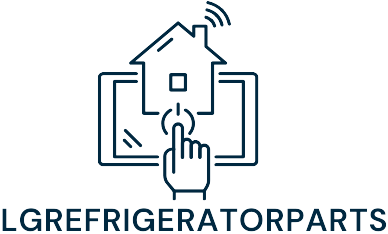Table of Contents
ToggleIn the bustling world of real estate, where fortunes can rise and fall faster than a hot property on the market, transparency is key. Enter the real estate whistleblower policy—a superhero in disguise, ready to save the day by encouraging those in the know to speak up against wrongdoing. It’s like having a secret weapon that ensures everyone plays fair, from the high-flying investors to the humble homebuyers.
Overview of Real Estate Whistleblower Policy
Real estate whistleblower policies play a crucial role in fostering accountability within the industry. These policies allow individuals to report unethical behaviors without fear of retaliation. Protections often extend to employees, contractors, and even consumers who expose malpractice.
Transparency significantly increases trust among stakeholders. Investors, agents, and homebuyers benefit from honest practices. A clear reporting process enables whistleblowers to submit concerns easily and securely. Many organizations implement hotline systems or online platforms for confidential submissions.
Legal frameworks support these policies, offering various protections. Federal and state laws often shield whistleblowers from discrimination or harassment. Potential legal repercussions for those who retaliate create a safer environment for individuals. Additionally, these frameworks encourage ethical behavior by imposing penalties on violators.
Education on whistleblower rights enhances awareness and participation. Training programs inform employees about internal and external reporting options. Organizations that prioritize education often see increased reporting activity, leading to prompt investigations and resolutions.
The effectiveness of real estate whistleblower policies hinges on a combination of clear processes, legal protections, and educational initiatives. Stakeholders must recognize the value these policies bring to the industry, enhancing trust and integrity while safeguarding the interests of all parties involved.
Importance of Whistleblower Policies in Real Estate
Whistleblower policies play a crucial role in the real estate industry by promoting transparency and accountability. These policies ensure individuals can report unethical behavior without fearing consequences.
Protecting Whistleblowers
Protecting whistleblowers is essential for fostering a culture of integrity in real estate. Policies provide crucial safeguards against retaliation, ensuring they can report misconduct safely. Employees and contractors benefit from legal protections that shield them from discrimination and harassment. Assurance of anonymity often encourages reports, enhancing the integrity of the entire industry. Effective enforcement of these protections builds trust among individuals engaged in real estate, motivating them to speak out against wrongdoing.
Encouraging Reporting of Misconduct
Encouraging the reporting of misconduct is vital for maintaining ethical standards in real estate. Clear reporting processes simplify the submission of concerns, allowing issues to be addressed promptly. Education about whistleblower rights increases awareness, leading to more individuals coming forward with information. Companies that actively support these initiatives create an environment where ethical practices thrive. Ultimately, promoting a culture that prioritizes reporting strengthens trust across all parties involved in real estate transactions.
Key Components of an Effective Whistleblower Policy
An effective whistleblower policy includes essential components that ensure protection and encourage reporting of misconduct. Clear procedures and strong confidentiality measures play crucial roles in achieving these goals.
Clear Reporting Procedures
Reporting procedures should be straightforward and accessible. Organizations must provide multiple channels for reporting concerns, such as hotlines or online platforms. They ought to outline each step of the process, allowing whistleblowers to understand what to expect. Training employees on how to use these procedures fosters confidence. When employees feel equipped, they are more likely to report unethical behavior. Additionally, designating a specific team or individual to handle reports ensures accountability throughout the process. Engaging stakeholders in developing these procedures can enhance transparency and build trust.
Confidentiality Assurance
Confidentiality is vital for creating a safe reporting environment. Organizations must pledge to protect the identities of whistleblowers whenever possible, ensuring that disclosures remain anonymous. Implementing strict data protection measures reinforces this commitment. When individuals know their information remains private, they are more likely to speak up. Providing regular updates on the status of reports also boosts confidence, as it shows that concerns are taken seriously. Furthermore, clear communication about potential consequences for breaching confidentiality helps maintain trust in the process. By prioritizing confidentiality, organizations cultivate a culture that values integrity and encourages ethical behavior.
Challenges in Implementing Whistleblower Policies
Implementing real estate whistleblower policies presents several challenges that organizations must address to ensure effectiveness.
Fear of Retaliation
Fear of retaliation remains a significant barrier for potential whistleblowers. Many individuals worry about job security and professional relationships if they report unethical practices. This concern can discourage reporting, leading to unnoticed misconduct. Organizational culture often influences this fear. An atmosphere that lacks support for whistleblowers perpetuates silence among employees. Legal protections exist, yet their effectiveness depends on the degree to which individuals feel safe to disclose wrongdoing. Without assured confidentiality and visible support, stakeholders may hesitate to come forward. Thus, addressing fear through transparent communication enhances participation.
Lack of Awareness and Training
Lack of awareness and training compounds the challenges associated with whistleblower policies. Many employees do not understand their rights or the processes involved in reporting misconduct. Organizations often neglect to provide adequate training on how to utilize whistleblower channels effectively. This oversight results in decreased engagement and reporting activity. Training programs should include clear guidelines on the reporting process and emphasize confidentiality. Regular workshops can foster a culture of transparency and prepare employees to act when necessary. As awareness improves, reporting rates may rise, leading to a more ethical environment.
Case Studies of Real Estate Whistleblower Policies
Several organizations have successfully implemented real estate whistleblower policies, enhancing transparency and accountability. The National Association of Realtors (NAR) devised a comprehensive whistleblower policy to protect individuals reporting unethical practices. This policy establishes clear reporting procedures and guarantees confidentiality for whistleblowers.
A prominent case involved a regional real estate firm where an employee reported fraudulent practices in property listings. Thanks to the firm’s whistleblower policy, the employee faced no retaliation, fostering a culture of integrity. Investigations uncovered significant misconduct, leading to disciplinary actions against those involved.
In another instance, a large real estate development company introduced an anonymous hotline for reporting ethical concerns. Regular communication about the process encouraged employees and contractors to report misconduct without fearing negative consequences. Increased reporting led to a heightened understanding of ethical standards within the organization.
Community advocacy groups showcase effective whistleblower policies as well. One group focused on affordable housing implemented training sessions for stakeholders, educating them about their rights as whistleblowers. This initiative raised awareness and prompted community members to report unethical landlord behavior, strengthening overall community trust.
Another example comes from a government housing agency that revamped its whistleblower protections under federal law. Enhanced training and clear communication about protections led to a 40% increase in reported violations. This change demonstrated that robust policies not only enhance reporting rates but also foster a culture of compliance and ethical behavior.
Each of these case studies illustrates the effectiveness of well-structured whistleblower policies in the real estate sector. These examples highlight how clear guidelines and protective measures can significantly impact ethical practices, encouraging more individuals to come forward.
Real estate whistleblower policies play a crucial role in promoting ethical standards within the industry. By fostering an environment of transparency and accountability, these policies empower individuals to report unethical practices without fear. The combination of strong legal protections and clear reporting procedures ensures that whistleblowers can act confidently, knowing their identities and rights are safeguarded.
As organizations adopt robust whistleblower policies, they not only enhance trust among stakeholders but also create a culture where ethical practices can flourish. Continuous education and training on these policies are essential for increasing awareness and participation, ultimately leading to a more responsible real estate sector. Prioritizing whistleblower protections is a vital step towards ensuring fairness and integrity for everyone involved.



